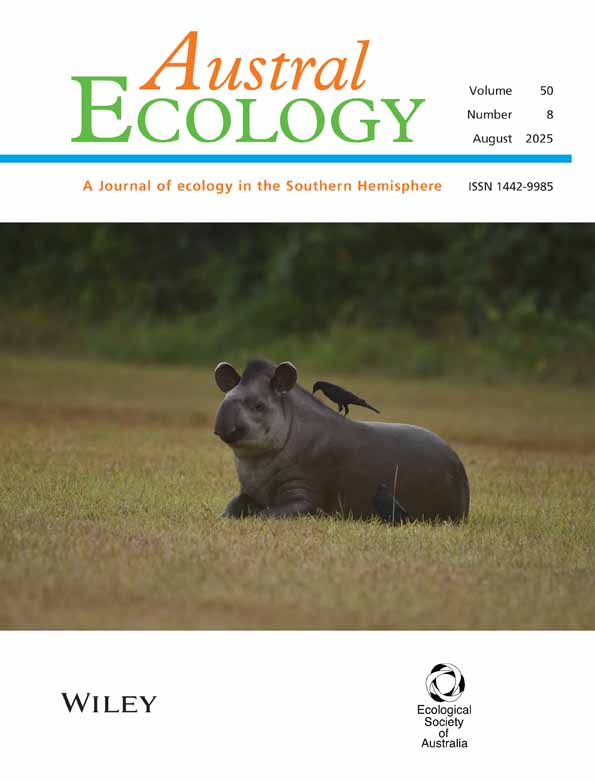The influence of insects on nutrient cycling in eucalypt forests: A beneficial role?
Abstract
Insect herbivory is common in many Australian eucalypt forests and, some have suggested, may be greater than in comparable forests overseas. It has been hypothesized by several authors that herbivores max nutritionally advantage either individual plants or plant communities by hastening the biogeochemical cycling of nutrients. This coevolutionary development, it is argued, would be a particular advantage in poor soils. These suggestions conflict, however, with evidence that eucalypts commonly conserve nutrients by nutrient withdrawal prior to leaf abscission and recycling a considerable proportion of nutrients through an internal biochemical cycle.
The various hypotheses that have been proposed are reviewed. Although there are some situations both at the individual and community level where herbivory may confer nutritional advantages it appears unlikely that high levels of herbivory in eucalypts are generally nutritionally beneficial to the plants being grazed.




